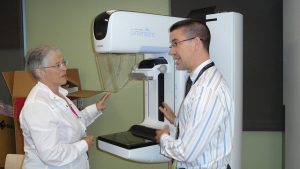How Mammograms Don’t Save Lives
A year ago a New England Journal of Medicine study revealed that mammograms are largely ineffective in preventing deaths from breast cancer. According to Dr H. Gilbert Welch, in a New York Times oped, the mortality benefit of mammography is much smaller, and the harm of overdiagnosis much larger, than previously recognized.
According to Welch, one of the co-authors, the outcome of three decades of mammogram screening has been the diagnosis of 1.5 million women with early stage breast cancer. While this number might seem impressive, mammography has only diagnosed 0.1 million women with late-stage (potentially fatal) breast cancer. This means that nearly a million women underwent unpleasant, invasive and unnecessary treatment (surgery, chemotherapy or radiation) for a non-lethal “cancer.”
Now a second Canadian study, published in the February 11 British Medical Journal, has replicated Welch’s findings. In the Canadian National Breast Screening Study, researchers followed almost 90,000 women for 25 years. Like Welch, they found that annual screening didn’t reduce breast cancer deaths. Instead they tended to lead to over-diagnosis and unnecessary treatment. In other words, cancers were found – and treated – that would have caused no problems during the patients’ lifetime.
In his New York Times editorial, Dr Welch laments misleading statements issued by the Komen Foundation and public health officials that early screening (by mammography) saves lives. The message they should be giving women is that they have a choice. While no one can dismiss the possibility that screening may help a small number of women, there’s no doubt that it leads many more to be treated unnecessarily for non-lethal cancers. Women need to decide for themselves about the potential benefit and risks. One serious potential risk Dr Welch doesn’t mention is the burden of radiation exposure from a lifetime of unnecessary mammograms.
Instead of screening all women with mammography, he recommends that health professionals only target women with a strong family history or genetic predisposition to breast cancer.
photo credit: photo credit: BC Gov Photos via photopin


The Most Revolutionary Act
- Stuart Jeanne Bramhall's profile
- 11 followers




